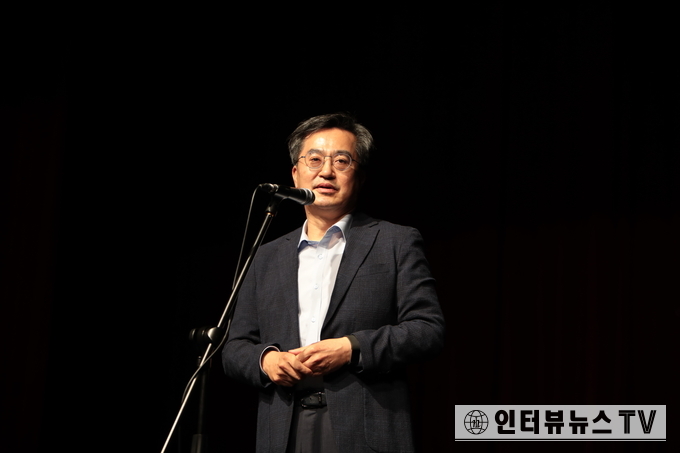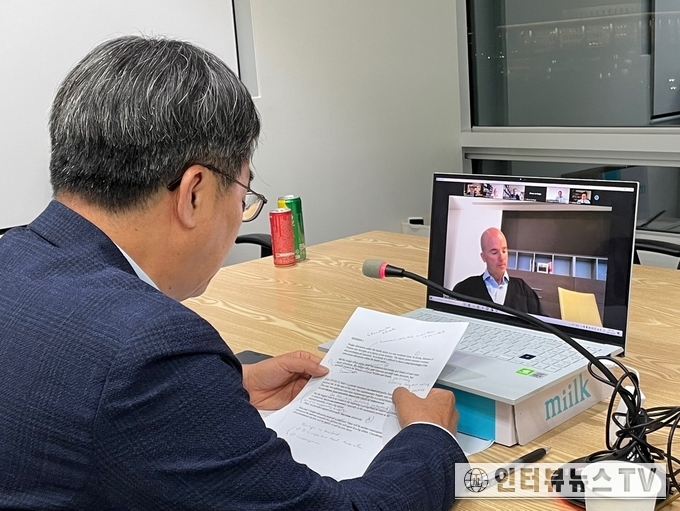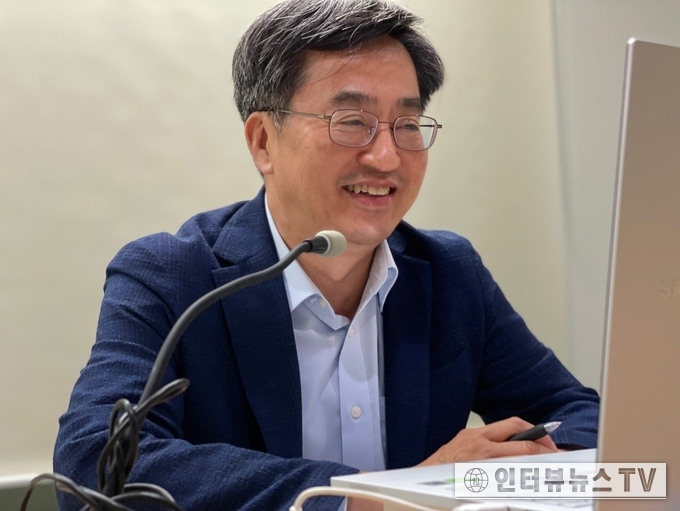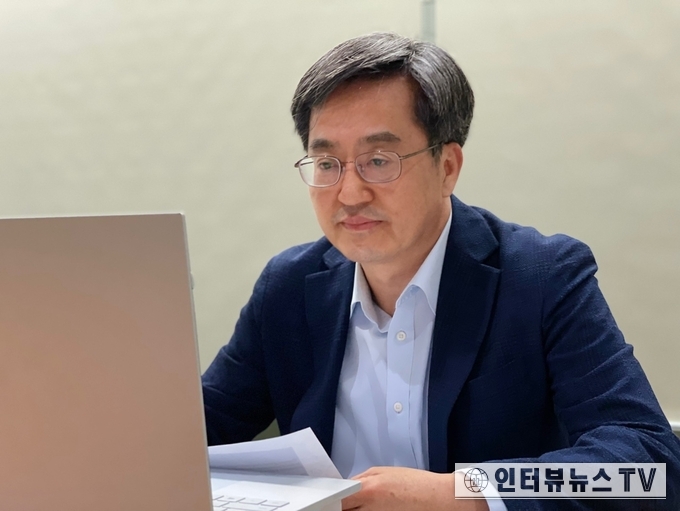
<김동연 대선 후보 ✔ 조용한 혁명 시대를 ✔ 소개하고있다>
영국 파이낸셜타임스(Financial Times, FT)는 지난 12일에 김동연 예비후보의 정책을 비중 있게 소개하며 이재명 더불어민주당 예비후보와 윤석열 국민의힘 예비후보와 함께 비교분석했다.
FT는 이재명 후보가 내세우는 보편적 기본소득을 소개하며 버니 샌더스 미국 민주당 상원의원에 비유하면서 우려를 내비쳤다. FT는 "이 후보의 기본소득 정책은 연간 100만원(840달러)에서 매월 50만원(420달러)까지 증가시키는 것”이라 설명하면서 “이 정책에 대해 비평가들은 실용적이지 못하고, 실제로 감당하기 어려운 것으로 평가한다”고 말했다.
FT는 윤석열 후보를 평가하며 그가 “반값 주택 50만호를 내걸어 젊은 유권자를 끌어들이려 한다는 것”에 대해 문재인 정부의 부동산 정책을 사례로 들어 비판적 평가를 했다. FT는 “2017년 문재인 대통령 집권 이후 집값 상승을 막으려 20개 이상의 정책을 시행했지만, 오히려 아파트 가격이 두 배 가까이 뛰었다”며 “서울 평균 아파트 가격이 12억 원(100만 달러)에 이르게 만들었고, 많은 중산층이 부동산 시장에서 낙오되었다”며 문 정부의 부동산 정책과 차별점이 없는 한국의 보수 진영을 지적했다.
김동연 후보는 개혁적인 지도자로 평가했다. FT는 “법체계를 뒤집고 싶어 한다”며 “프랑스 대통령 에마뉘엘 마크롱을 닮았다”고 설명하면서 “이재명 후보의 기본소득 정책보다 더 심도 있고 근본적인 제도 변화를 희망하고 있다”고 평가했다. 이어서 김 후보의 혁신성장 정책을 조명하면서 “‘기존 법으로 되는 것을 정해놓은 방식’에서 벗어나 ‘다른 선진국처럼 안 되는 것만 규정하고 나머지는 허용하는 식’으로 제도를 바꿔야 혁신을 촉진할 수 있다”고 소개했다.
뿐만 아니라 FT는 “쓰레기통에서 고시잡지를 우연히 발견한 것을 계기로 관료가 돼 지독한 가난에서 스스로 이겨낸” 김 후보의 인생스토리도 소개했다. 덧붙여 김 후보가 “관료로 성공한 인물임에도 불구하고 관료주의와 ‘공무원 철밥통’을 깨려는 사람”으로 묘사했다.
글로벌 경제지 FT에서 4차 산업 혁명 시대를 잘 대비할 수 있는 한국의 미래지도자에 대해 비교분석했다는 점에서 주목할 만하다고 밝혔습니다.

■ 영국 파이낸셜타임스 원문
South Korea's 'Bernie Sanders' touts universal basic income ahead of polls
Leading presidential candidates embrace radical economic shifts to tackle growing inequality
Presidential candidates have sharpened their focus on property prices, a symbol of South Korea's economic polarisation
We'll send you a myFT Daily Digest email rounding up the latest South Korea Politics &Policy news every morning.

A universal basic income (UBI) of more than $400 a month is moving closer to reality for South Koreans as leading presidential candidates vow to unleash radical policies to combat worsening inequality.
The UBI – a government programme whereby the state unconditionally pays everyone a monthly sum – is viewed by some economists as a fix to entrenched poverty and by libertarians as a way to demolish bloated bureaucracies. But critics believe the policy is impractical and unaffordable.
Lee Jae-myung, who won the ruling party's primary race this weekend, has vowed to progressively roll out the policy over his five-year term if he wins the presidential election in March, potentially making the Asian nation the first country to adopt a national UBI.
“Real freedom is possible only when basic life conditions are guaranteed in all including income, housing and financing." said Lee, who has been likened to Bernie Sanders, the leftwing US senator.
He added that South Korea “should be a country where unfairness and inequality are resolved and there are abundant opportunities and dreams through sustained growth”.
Under Lee's plan, all South Koreans would initially receive a Wonim ($840) annual payment that would be progressively expanded over the years until they reach a monthly sum of Won500,000 ($420).
Lee, of the leftwing Democratic party and governor of the country's most populous province, is building a popular platform based on aggressive welfare spending, low-priced public housing and cheap loans for the poor.
But the 56-year-old is not alone in looking to untested ideas to counter chronic problems that successive governments have failed to combat: soaring education and housing costs, mounting household debt, rising youth unemployment, unparalleled elderly poverty and the world's lowest fertility rates.
As the health crisis drags on, people agree that we need a stronger social safety net. So they are gradually accepting some of the radical platforms that were long seen as socialist ideas," said Park Chong-hoon, head of research at Standard Chartered.
Kim Dong-yeon, a popular former finance minister who is trying to model himself on French president Emmanuel Macron, wants to go even further and completely overturn the county's legal system.
"The Korean law stipulates only things that are legal so the rest is considered illegal. But it should be the other way around like in many other advanced countries," Kim, who is planning to run as an independent candidate, told the Financial Times. He believes the overhaul is necessary to spur deregulation and unlock innovation.
Kim is a career bureaucrat who pulled himself out of poverty after discovering a discarded civil service examination book in a rubbish bin. But now he wants to abolish the entrance exams to boost the quality of the country's bureaucracy, potentially shattering a taboo of life-long security promised to civil servants.
Conservative opposition candidates are also embracing the giving mood in a turn away from their more austere economic and market-based tendencies.
They have sharpened their focus on property prices, a central symbol of South Korea's growing economic polarisation.
Apartment prices have almost doubled since President Moon Jae-in took office in 2017, despite at least 20 new policy initiatives designed to combat price increases.
Many middle-class households are priced out of the property market, with average apartment prices in Seoul hitting $im, a threshold few Koreans thought possible.
Yoon Seok-youl, the former chief prosecutor and leading opposition candidate, is trying to attract young voters with a pledge of 500,000 half-priced housing units. Other candidates have proposed a series of massive development projects, including relocating a military airport just south of the capital to boost land supply for housing.
Critics, however, question the sustainability of the plans, citing funding problems.
Paul Choi, an economist at CLSA, an investment group, said a victory for Lee might provide a short-term "steroid effect" but risked the long-term health of Asia's fourth-biggest economy.
The focus on inequality marks a stark change from five years ago when Moon rose to power on the back of a spectacular corruption scandal involving Park Geun-hye, the impeached former president.
Booming exports and a robust healthcare response helped South Korea achieve one of the world's fastest recoveries from a pandemic-induced recession last year. But senior officials concede they have been caught off-guard by the speed at which the gap between rich and poor has widened during the coronavirus pandemic.
Shin Yul, professor of politics at Myongji University in Seoul, said next year's polls looked set to be dominated by populism".
"With many people in economic trouble, they want a charismatic leader with a strong image," Shin said, "regardless of how plausible their platforms are.“

-Copyright The Financial Times Limited 2021. All rights reserved-
Reported by
Alexander Utt. : Freelancer Journalist
김홍이/뉴스탐사기자(Hong-e Kim Journalist)
정석철/국회출입기자
